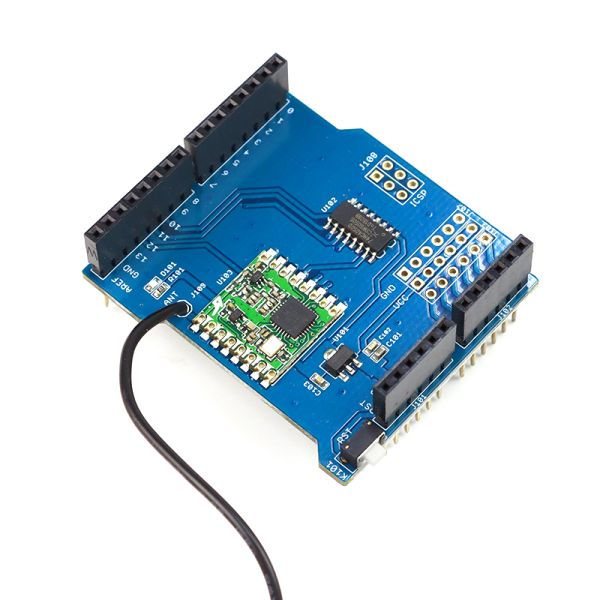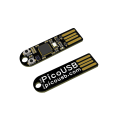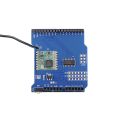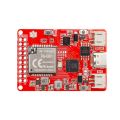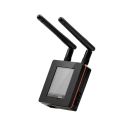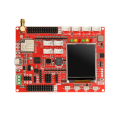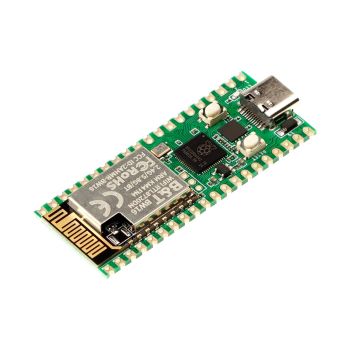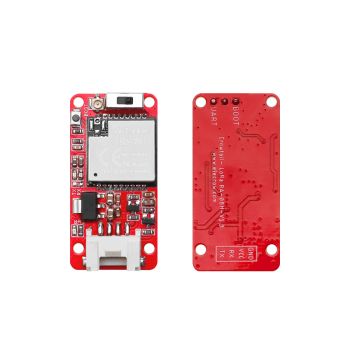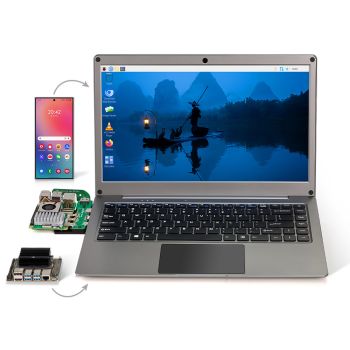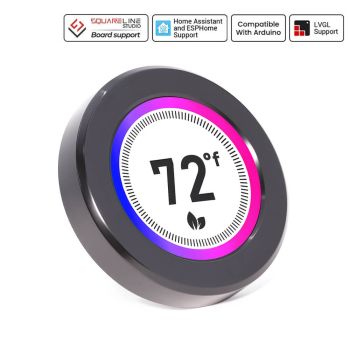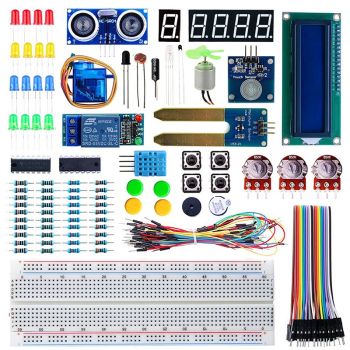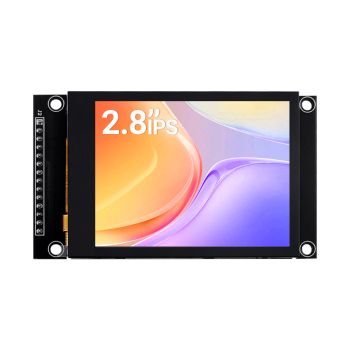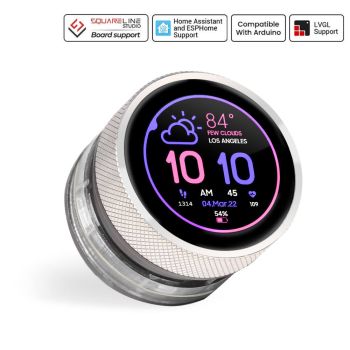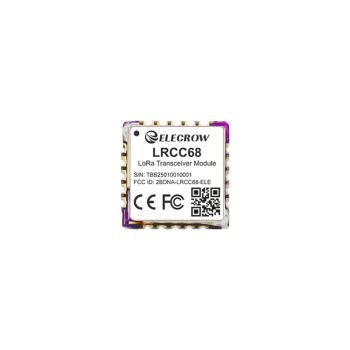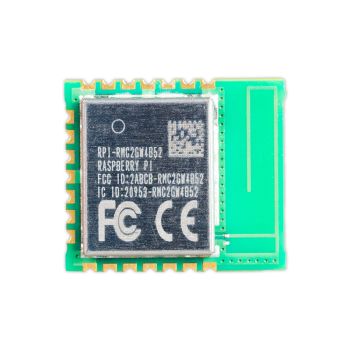Currency
RFM69 Shield
was
$10.90
Special Price
$3.82
Availability:
Out of stock
SKU
ACS15238R
Brand
elecrow
Weight
15g

×
 Add to cart successfully!
Add to cart successfully!


Customers Who View This Item Also Bought
Frequently Bought Together
The RFM69HCW is an inexpensive and versatile radio module that operates in the unlicensed ISM (Industry, Science and Medicine) band, a set of frequencies set aside for low-power, short-range, license-free radios. It’s perfect for building inexpensive short-range wireless networks of sensors and actuators for home automation, citizen science and more.
The RFM69 can get messages from one side of a large office building to the other through numerous internal walls. In open air you can reach 500 meters or more. With more complex antennas and modulation schemes, similar parts have successfully transmitted from space to the ground (by very smart amateur radio enthusiasts; your mileage may vary)!
The RFM69HCW uses an SPI (Serial Peripheral Interface) to communicate with a host microcontroller, and several good libraries for Arduino are available. It supports up to 256 networks of 255 nodes per network, features AES encryption to keep your data private, and transmits data packets up to 66 bytes long.
The RFM69 Shield connects the RFM69 module to the appropriate lines on the Arduino-compatible board. By using the RF69 Library, you can send and receive messages via standard 4-wire SPI. The library includes command structures for setting up anything from simple non-addressed point-to-point communication to fully addressed networks of clients and routers. The shield has on-board power regulation and level shifting. There are one pin headers and jumpers on the interrupt (nIRQ), interface select (nSEL), shutdown input (SDN) and GPIO2 lines so that you can cut the trace and reroute those lines if you need to for your project.
The RFM69 can get messages from one side of a large office building to the other through numerous internal walls. In open air you can reach 500 meters or more. With more complex antennas and modulation schemes, similar parts have successfully transmitted from space to the ground (by very smart amateur radio enthusiasts; your mileage may vary)!
The RFM69HCW uses an SPI (Serial Peripheral Interface) to communicate with a host microcontroller, and several good libraries for Arduino are available. It supports up to 256 networks of 255 nodes per network, features AES encryption to keep your data private, and transmits data packets up to 66 bytes long.
The RFM69 Shield connects the RFM69 module to the appropriate lines on the Arduino-compatible board. By using the RF69 Library, you can send and receive messages via standard 4-wire SPI. The library includes command structures for setting up anything from simple non-addressed point-to-point communication to fully addressed networks of clients and routers. The shield has on-board power regulation and level shifting. There are one pin headers and jumpers on the interrupt (nIRQ), interface select (nSEL), shutdown input (SDN) and GPIO2 lines so that you can cut the trace and reroute those lines if you need to for your project.
Features
- Frequency Range = Software configurable from ~240MHz to 980MHz
- Sensitivity = -118 dBm
- +17 dBm Max Output Power (Configurable)
- Data Rate = 1 to 128 kbps
- Digital RSSI
- Wake-on-radio
- Configurable packet structure
- Preamble detector
- TX and RX 64 byte FIFOs
- Low battery detector
- Temperature sensor and 8-bit ADC
- -40 to +85 °C temperature range
Specifications
- Transmit power: -18dBm (0.016mW) to +20dBm (100mW) in 1dBm steps
- Receive sensitivity: down to -120dBm at 1.2kbps
- Standby current:200uA
- Bit rates : 1.2kbps to 300kbps
- Work voltage: 5V
- Current consumption: 0.1uA sleep, 1.25mA standby, 16mA receive, 130mA transmit (max)
- Encryption: AES 128-bit (optional)
- Packet buffer (FIFO): 66 bytes
Package list
- RFM69 shield x1
Wiki & External links
Write Your Own Review
Bestselling Products You May Like
New Products You May Want

